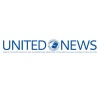Role of the President in International Areas
Mr. Dick introduced a topic that will require a great deal of discussion. The dialogue started with the initial question: "What is the role of the president in international areas of the Church?" During meetings in August 2005 Mr. Kilough asked the Council to clarify his role. Leon Walker gained approval of the Council to discuss the matter with elders in international areas. He sent a letter and survey to all of the international elders shortly before the 2005 Feast of Tabernacles. Mr. Dick provided the Council with a four-page summary of discussions on this topic between Council members during agenda planning.
Mr. Walker began by stating that the responses to the survey went in a different direction than was anticipated and opened up even more fundamental issues for discussion. Mr. Walker wrote in an e-mail communication to Mr. Dick that confusion, "...in the international areas regarding the role of the president internationally is to some extent... due to a lack of clarity with respect to how the Council and president should function."
There is need for a better understanding of the roles of the Council of Elders, the Church president and the National Councils and how they function together. Mr. Walker acknowledged that this issue has been discussed several times but never fully resolved. He stated that starting with defining the role of the president would be "putting the cart before the horse" and that first it would be better to define foundational concepts. Then, he said, defining the president's role will be much easier.
Mr. Walker asked the Council to consider some questions about those foundational concepts. What is the United Church of God? Are we merely an association of independent entities around the world with no overall global central administration? Are we just tied together by certain doctrines or policies, but not by a common administration?
Each National Council has its own bylaws due to legal requirements in its respective country. But does the United Church of God transcend national boundaries and legal documents? Are National Councils the supreme administrative authority for each area? Or do they recognize an authority over them? If so, is that authority the Council of Elders? Mr. Walker pointed out that we have a common vocabulary, but often don't have common definitions for our words. For example, what is the meaning of "governance," "administration," "association," "micro-management," etc.?
Mr. Walker emphasized that the purpose of the discussion today is to begin talking about the subject and then determine what steps should be taken. He pointed out that the Church is in a position now to resolve issues that we could not 10 years ago. He acknowledged that there is much work to be done on these questions and that it might take as long as a year to come to final resolutions.
A brainstorming session continued for more than an hour, during which many more specific questions were raised. The tone of the session was positive and contemplative, as the Council reviewed previous discussions, conclusions, Church documents and unresolved issues. Members agreed that as the unified, spiritual Body of Christ, the Church exists across national boundaries and is not limited by national laws and regulations that define churches in their countries.
Mr. Kilough commented that to understand how we should function together, we have to first of all view ourselves in light of the ideal of God's Kingdom and then work back from there to the way we operate today. He noted that Paul, who worked with widely diverse congregations, constantly emphasized unity. He stressed that, likewise, we should be more than just a Church that functions across national boundaries—in the spiritual sense, we should be a Church without national boundaries.
Tony Wasilkoff stated that the fear some international areas have, based on history and experience, is that the "strong arm of headquarters" will try to take control. He said it's important to coordinate with international areas, not to control them. He commented that the Rules of Association are designed to further good relationships and effectively facilitate the work of the Church. What's sometimes missing is how to do what we intend.
Several emphasized that the president's responsibilities are outlined in a statement issued by the Council in September 1999 titled "Roles and Responsibilities of the President." This document defines the president as the one who can best help to administer the Council's decisions. Mr. Walker acknowledged that the document is a good starting point, and that while the Council passed it by resolution, there was no input from international areas.
Mr. Dick pointed out that elders in the United States also have questions about the roles of both the Council and the president. There are fundamental questions about what leadership is, what authority is and who has it. Mr. Walker agreed, pointing out that some erroneously believe that the president is superior to the Council.
At the conclusion of the meeting, a resolution was passed to assign the next steps in the process of dealing with these issues to the Ethics, Roles and Rules Committee of the Council.


